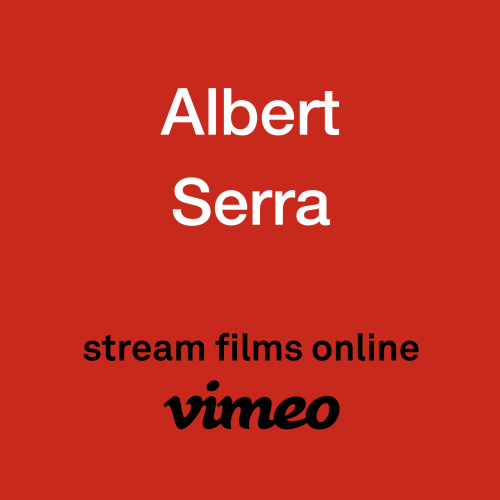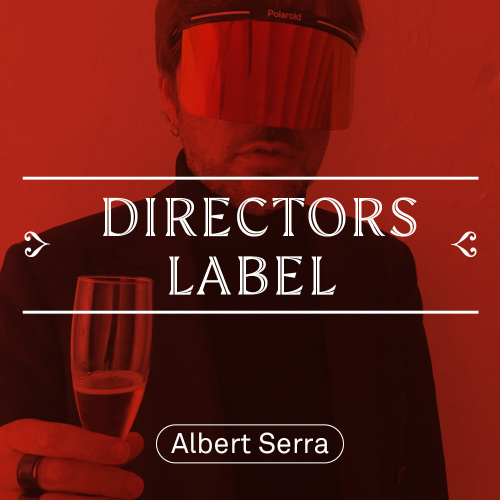
Honour of the Knights
HONOR DE CAVALLERIA, Spain 2006, 107 min
Based on the novel "El ingenioso hidalgo Don Quijote de la Mancha" by Miguel de Cervantes.
Synopsis
HONOR OF THE KNIGHTS reduces Miguel de Cervantes' "Don Quixote" to its essentials: Quixote and Sancho on a journey. They gallop through the country in search of adventures. Along the way, they philosophize about spirituality, chivalry and daily life. Their friendship deepens.
Streaming-Info
Rent or buy the movie on our Vimeo channel. For other providers, see “Watch Movie”.
Language: Catalan, Subtitles: German, English
Press reviews
A hauntingly serene and sometimes moving experimental take on «Don Quixote», Albert Serra's Honor de Cavalleria seems to have spliced that Spanish classic to «Waiting for Godot» via Bresson and Ozu. Silent and gentle where the original is verbose and tumultuous, Serra reads between the lines of Cervantes' masterpiece and works its absences up into two hours of painterly auteur fare. Over the first ten minutes, there are only a couple of brief exchanges as Sancho looks for a laurel crown for his master. The slow ritual of Sancho putting on Quixote's armor is shown, while the physically most active sequence has Quixote bathing in a river and gleefully encouraging Sancho to do the same. One night, Quixote is mysteriously spirited away by four men on white horses. With its beautifully nuanced and mostly voiceless thesping by the central duo, Honor de Cavalleria transmits an appealing air of serenity. Like the directly-recorded sound, lighting is entirely natural. Some scenes disappear into almost-blackness, but the supercharged, dramatic skies over the Catalan countryside are sufficiently spectacular not to need tech manipulation. There's not a windmill in sight. – Jonathan Holland, Viennale
Serra’s masterful distillation on Miguel de Cervantes’s Don Quixote draws on the classic tale to create a mesmerising work conjured out of the raw landscapes and the unaffected performances of the nonprofessional cast. Enriched with Serra’s fascination with the past, the film draws equally on myths, landscapes and traditions of Europe as well as work of artists and writers such as Salvador Dalí, Luis Buñuel, Federico García Lorca, Pepín Bello. The film vividly captures a hermetic world and the camaraderie between the two principle characters. Filmed in atmospheric long takes that allow us to join Don Quixote and Sancho on their journey, their honour maintained in stark contrast to their increasingly futile adventure. Although no end is in sight their journey is coloured by their defiant nobility and filled with wonder at being in the world. – Tate Modern
Honour of the Knights is easily the most striking Spanish film of 2006. Albert Serra is original, without making a secret of whom and what inspired him. Clear and to the point - both through homages in his film and in accompanying text and interviews - he states what he wants to achieve. This serene, painterly film debut reminds us of the films of Ozu, Olmi, Bresson and Pasolini, but also of the ideas and approach of Godard, Rocha and Paradzhanov (occasionally explicitly), without being disruptive or irritating. On the contrary, the gentle human approach that makes this film so moving brings us closer to heaven… – International Film Festival Rotterdam
Awards and Festivals
- Cannes Film Festival - Directors' Fortnight 2006
- 7th Seoul Film Festival 2006
- 54º Festival Intenacional de Cine de San Sebastián 2006
- 25th Vancouver International Film Festival 2006
- VIENNALE - Vienna International Film Festival 2006 - FIPRESCI Award
- BFI 2006, The Times London Film Festival
- 30th MOSTRA Internacional de Cinema Saô Paulo 2006
- 24th Torino Film Festival 2006 - Lancia Award for the Best Film, Special Jury Prize for Lluís Carbó & Lluís Serrat
- ENTREVUES 2006, 21ème Festival du Film, Belfort - Gran Prix for the Best Film and Janine Bazin Award for the two leading actors performance
- Spanish Cinema Now 2006, Film Society of Lincoln Center, Nova York
- Semana del Cine Catalán 2006, Casablanca - Best Film in VO and Best New Director Award
- 44º Festival Internacional de Cine de Gijón 2006
- Palm Springs Internacional Film Festival 2007
- 36e Internacional Film Festival Rotterdam 2007
- Göteborg International Film Festival 2007
- FICCO 2007, Festival Internacional de Cine de Mexico
- 22º Festival Internacional de Cine de Mar del Plata 2007
- VIVA 2007, 13th Spanish & Latin Film Festival, Manchester
- 31st Hong-Kong Internacional Film Festival 2007
- NATFILM Copenhagen 2007
- BAFICI 2007, Buenos Aires Independent International Film Festival
- CINE LATINO 2007, Filmtage Tübingen
- Shanghai International Film Festival 2007
- Los Angeles Film Festival 2007
- Seoul Digital Film Festival 2007
- Auckland Film Festival 2007
- Wellington Film Festival 2007
- Melbourne Film Festival 2007
- The Film and Art Festival in Kazimierz 2007
- Bos`Art Film Festival 2007
- Split Filmfest 2007 - Special Award
- UNDERDOX Film Festival 2007, Munich
- 14th Valdivia International Film Festival 2007
- Thessaloniki Film Festival 2007
- Festival Internacional de Cine de Cuenca 2007 - Best Actor for Lluís Carbó and Best Cinematography
- SPOT 2008 Taipei Film House
- Festivalíssimo 2008, Festival de Filmes Ibéro-Latinoaméricains de Montreal
- Ljubljana International Film Festival 2008
- Batik 2009 Perugia Film Festival
- Milano Film Festival 2016
Additional Texts
PRESENTATION
The film Honor de cavalleria is a free adaptation of Don Quixote. The shoot took both the artistic and technical team on a journey (cinematographically, but also in real life) that had a great deal in common with the journey taken by the novel’s two protagonists. For the two characters, theirs is a solitary, anonymous, desperate life yet, at the same time, their journey takes them through the heroic world of chivalry. In the case of the crew, theirs was the journey from the film’s initial conception, from how they dreamed it would be to the film that was ultimately made. The similarities between these two journeys represent the principal theme of the film. On an artistic level, therefore, this film is not the “narration of an adventure but the adventure of a narration”.
Honor de cavalleria is an aesthetic and conceptual synthesis of the most pure influences (including Lancelot du Lac, The Gospel According to St. Matthew, Francesco, Giullare di Dio, Ozu, Sokurov), the innovative, eccentric cinema of the 60’s (Paradjanov, Godard), and the personal mythology of the author.
Lluís Carbó and Lluís Serrat play the two protagonists. They bring out the poetry, simplicity and beauty of the intimate relationship between the two characters. Their performances mark a return to the noble tradition of non-psychological acting. Shot entirely on location in natural surroundings, no man-made construction appears in the film.
PRODUCTION NOTES
Honor de cavalleria was shot during the months of September and October 2005. The film was shot on location in natural surroundings, mainly in the Alt Empordà area (St. Climent Sescebes, St. Miquel de Colera, Albanyà, St. Pere de Rodes, Espolla), but also in the Pla de l’Estany (Foncoberta) and the Garrotxa (Santa Pau) in the province of Girona.
The editor is Àngel Martín, with original music by Ferran Font and sound mix by Ricard Cassals.
Honor de cavalleria has been selected to participate in the Quinzaine des Réalisateurs at the 2006 Cannes Festival, where it will compete for the Cámera d’Or. It is due to open in commercial cinemas in Spain on the 12th May.
DIRECTOR’S NOTES
“The plot of Don Quixote, reduced to its fundamentals, is this: Quixote and Sancho, travelling. The desire to see images of the two of them is the reason why the project was born, but no more than that. The essence is actually in the details of the performances and the symbolic significance of the sum of apparently mundane occurrences. Yasujiro Ozu is a crucial influence on this manner of working and reaching an understanding of the beauty of cinema. To underline this approach it was necessary both to avoid a vulgar modernization of the story and to keep from choosing the most popular passages of the book. The only scenes taken from the novel are short and marginal to the plot but very powerful poetically. The rest of the scenes in the film are invented or freely adapted from other sources (Chrétien de Troyes’ The Knight of the Excursion Cart, Tirant lo Blanc, historical studies of chivalry by Martí de Riquer…). They portray the intimacy and fascination of a reality that exists purely in the mind, the only reality of importance in a film about Quixote. The tension between this mental reality and the actual daily life of the two protagonists is the recurrent theme of the film. It dominates the film to the extent that it takes the place of narrative development. The mystery and poetry of the film, which often recalls the ‘static and latent’ beauty of classical painting, stems from this, together with the original way in which this tension is translated into images.
This almost mystical atmosphere is also due, in part, to the hyper realistic and original performances of the two actors, Lluís Carbó and Lluís Serrat. Both are unknown, non-professional actors, like the actors in the films of Bresson, Emanno Olmi and (most of) Pasolini. These three directors, together with Godard, Ozu and Dovzhenko, are the inspiration behind the cinematic imagery that nourishes the film. Explicit homage is paid to them at various points in the script.”
Albert Serra
Set photos from the film shooting of HONOUR OF THE KNIGHTS. "Honor de cavalleria was shot during the months of September and October 2005. The film was shot on location in natural surroundings, mainly in the Alt Empordà area (St. Climent Sescebes, St. Miquel de Colera, Albanyà, St. Pere de Rodes, Espolla), but also in the Pla de l’Estany (Foncoberta) and the Garrotxa (Santa Pau) in the province of Girona." Albert Serra
Credits
Director and Screenplay
Albert Serra
With
Lluís Carbó, Lluís Serrat
Director of Photography
Christophe Farnarier, Eduard Grau
Editor
Àngel Martín, Albert Serra
Art Director
Jimmy Gimferrer
Sound
Joan Pons, Jordi Ribas
Music
Ferran Font, Cristian Vogel
Sound Mix
Ricard Cassals
Executive Producer
Montse Triola, Lluís Miñarro, Adolfo Blanco
Producer
Albert Serra, Montse Triola
Produced by
Andergraun Films, Eddie Saeta, Notro Films
Distribution Details
Screening Format
DCP (2K, 25 fps, 5.1)
Blu-ray Disc
Aspect Ratio
35mm, 1.85:1
Language
Catalan
Subtitles
German, English
Promotion Material
Digital images
License Area
Germany, Austria, Switzerland
Rating
Not yet been checked








